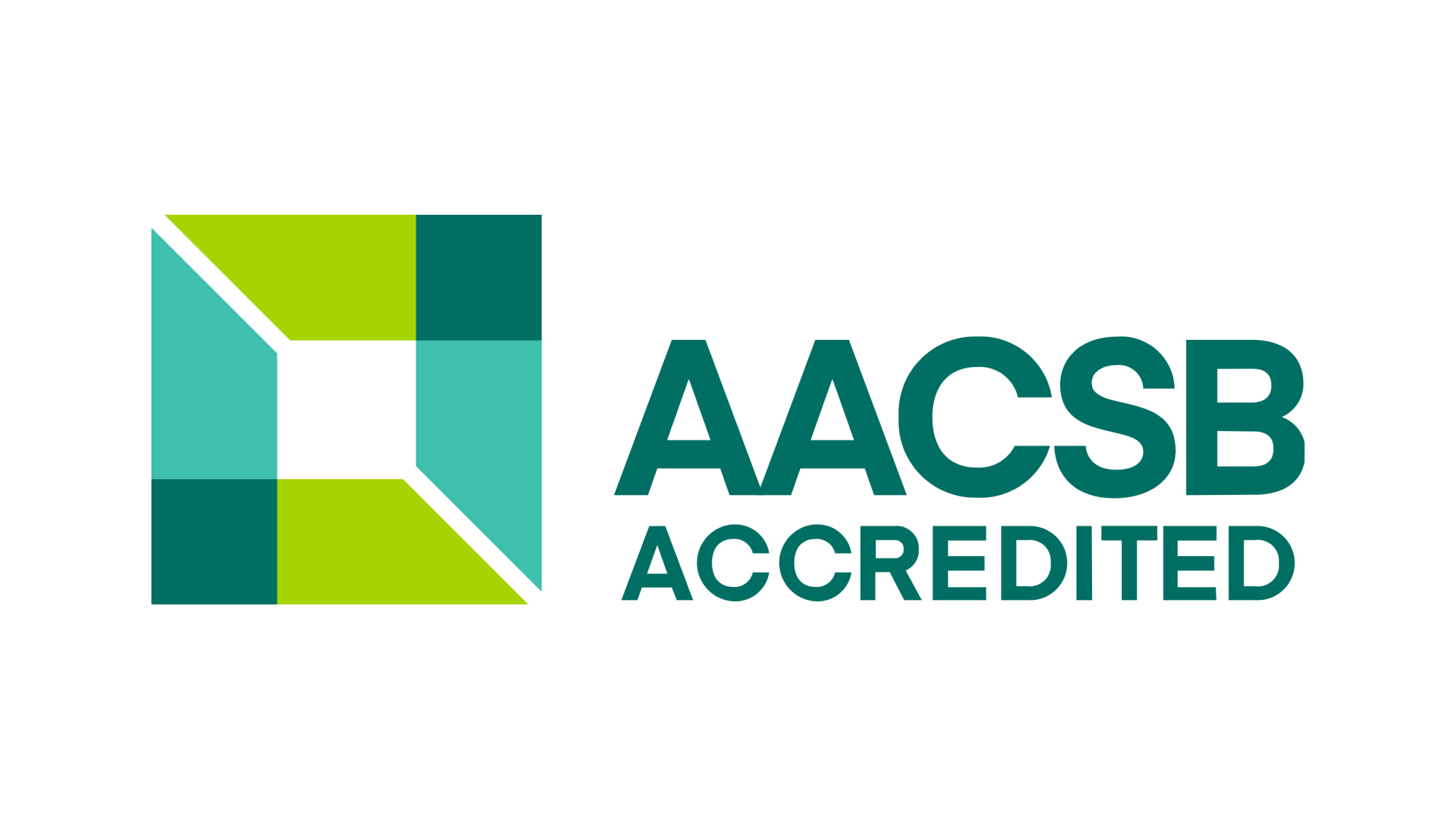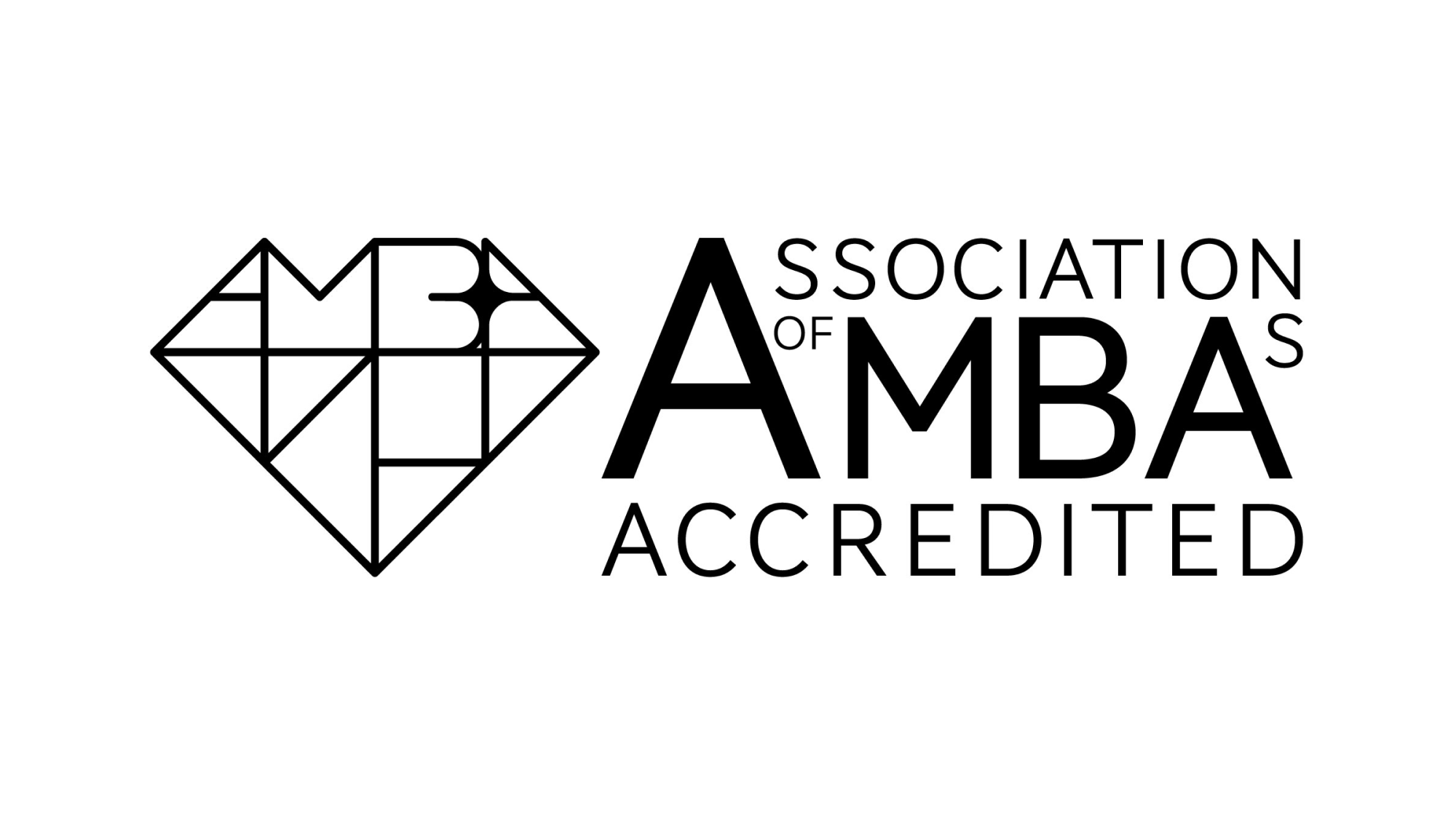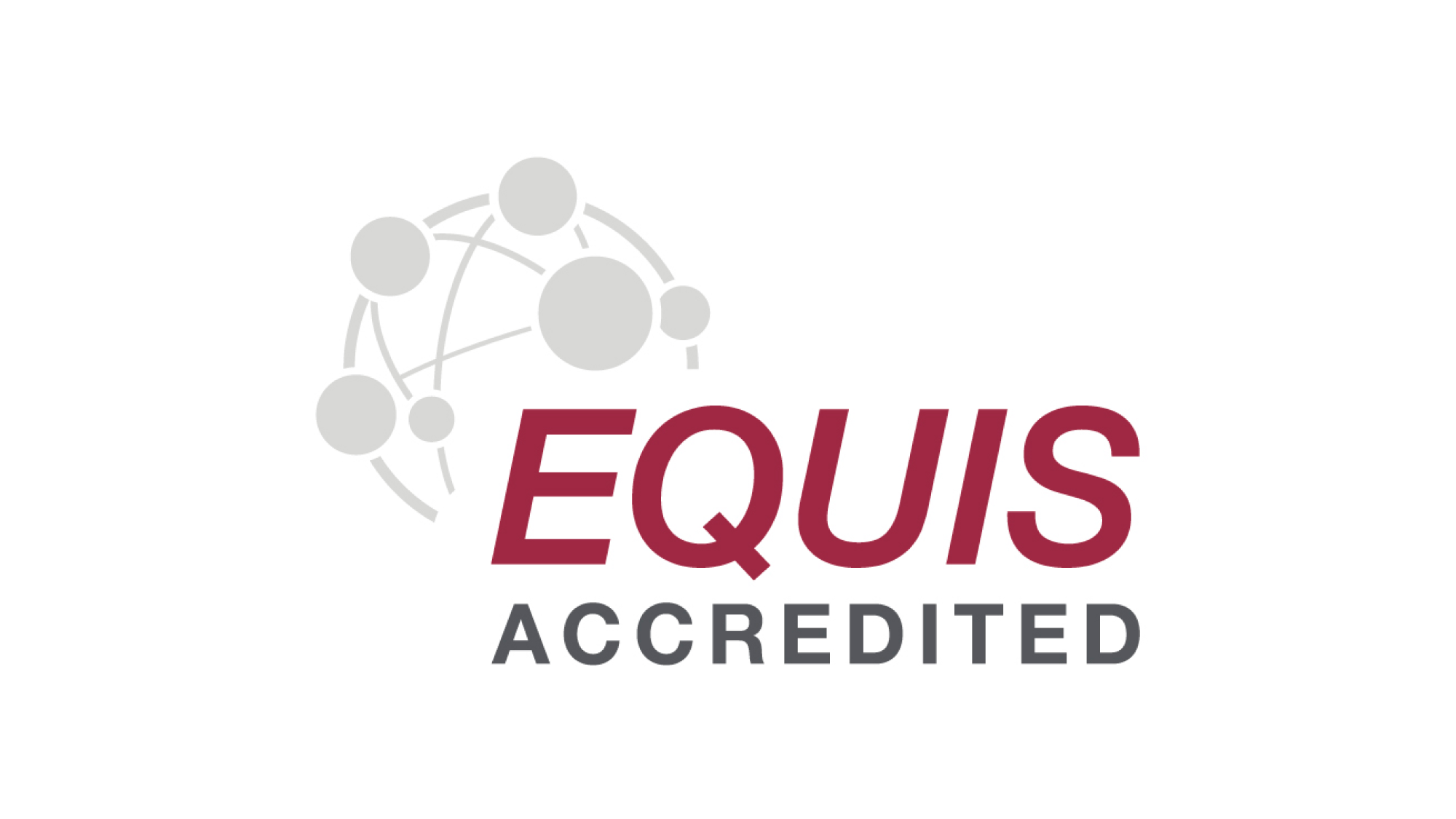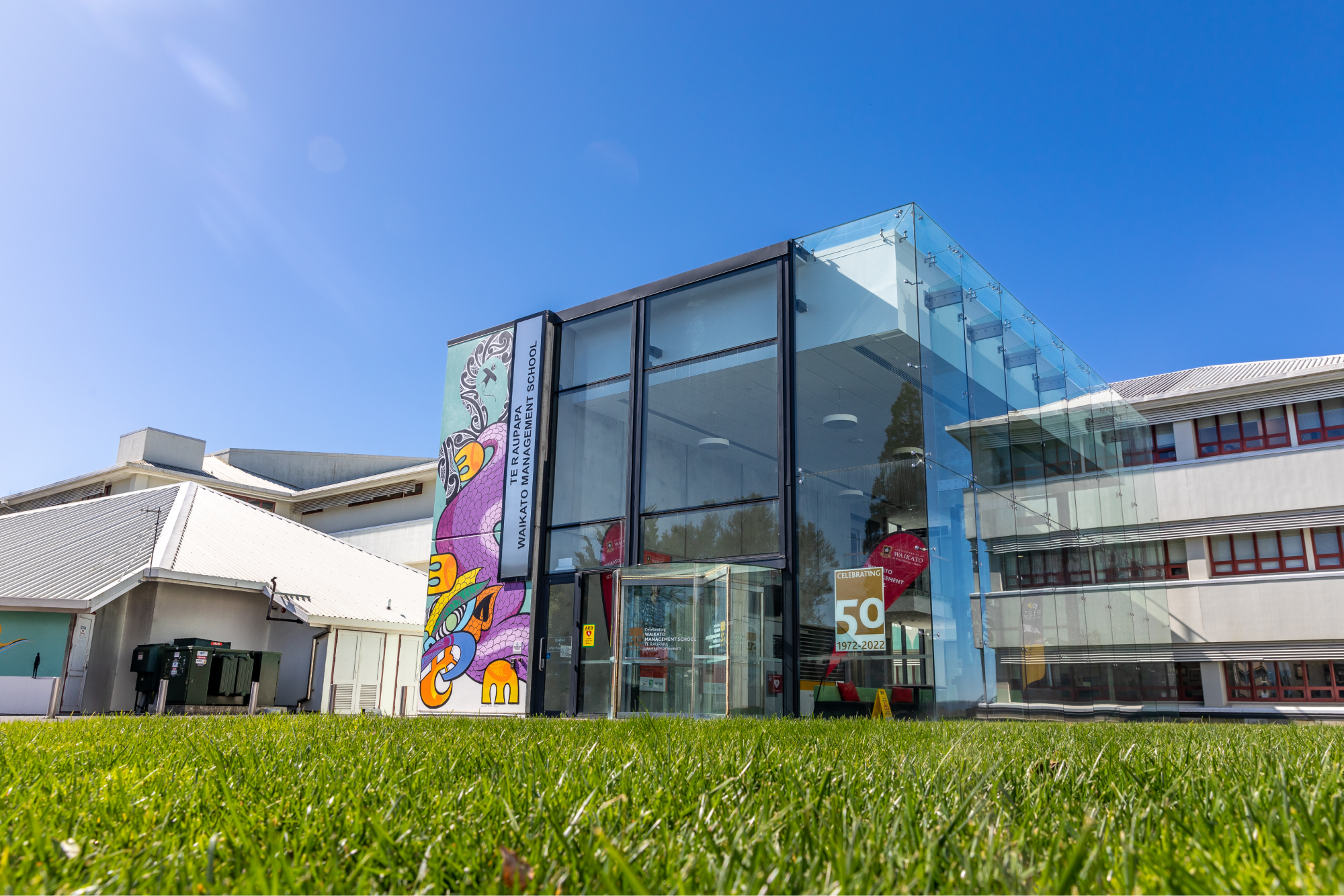
Enrol at a business school in the top 1% globally.
At Te Raupapa Waikato Management School (WMS), our focus is on your success and our drive for excellence is embedded in the school's DNA. We were the first business school in New Zealand to achieve the prestigious Triple Crown Accreditation, which we still hold today. This places us in the top 1% of business schools globally.
Here at WMS, you'll learn from passionate lecturers who are experts in their fields, actively engaged as business consultants and researchers with ties to leading companies and government agencies all around the world.
We believe in empowering you to think independently and collaborate effectively through interactive discussions and hands-on learning opportunities.
With our smaller class sizes, our lecturers are not only knowledgeable but also approachable. We're here to support your journey towards success, on hand to provide extra support when you need it.

Study
Explore our qualifications — including a variety of specialist subjects. Whether you're pursuing an undergraduate or postgraduate degree, or opting for a certificate or diploma, our programmes will supercharge your career in the dynamic world of business.
Apply to the Waikato Management School

About us
Find out more about the Waikato Management School, including our people, and our current strategy.

Welcome from the PVC
At the Waikato Management School, our purpose is to empower people to grow thriving businesses, a thriving society, and a thriving world.

Research
Close industry connections with SMEs, not-for-profits, multinational corporations, government agencies and other major organisations, give our academics world-leading expertise, real-world insights, and deep connections with business and society.

Student experience
Our students can access a range of services to make their learning experience more enjoyable and successful. The Management Student Centre (MSC) has a team of advisors who can help you choose your programme of study, including a dedicated Māori mentor.

Key events
The events calendar at Waikato Management School is packed with exciting opportunities — from guest speakers and research seminars, to our legendary WMS Case Competition and the NZ Economics Forum. Find out more about upcoming events.

Business Alumni
Learn more about our Business Alumni network at Waikato Management School. Stay connected, share insights, and inspire the next generation of leaders.

Business engagement
Learn to lead with confidence and make connections that matter through our broad range of executive education and corporate development programmes — designed to meet the specific needs of business, and industry, and the needs of working managers.

News and media
Stay up-to-date with the latest announcements from Waikato Management School, check recent media articles that feature our staff or students and look back through our archive of WMS in the news.
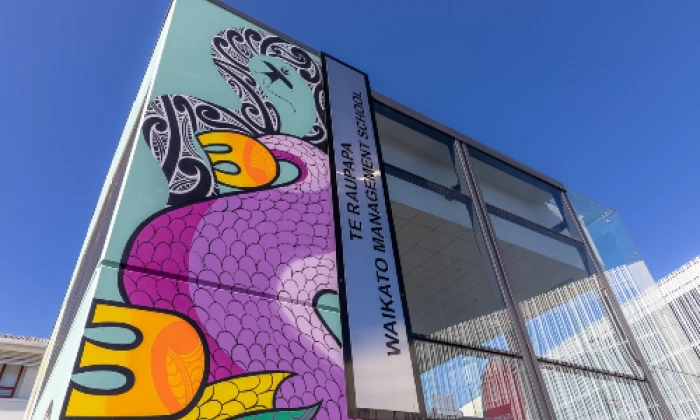
Accreditation and rankings
WMS has proudly held Triple Crown Accreditation since 2005 — an international benchmark of excellence that puts us in the top 1% of business schools globally. We are also ranked 1st in NZ and in the top 3% globally for economics research.
Meet some of our students
Contact us
If you have any general enquiries, please get in touch — we're here to help you.
